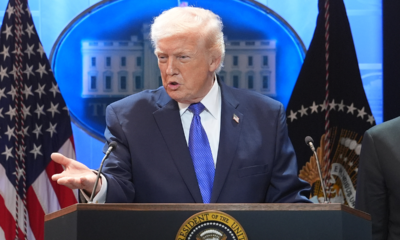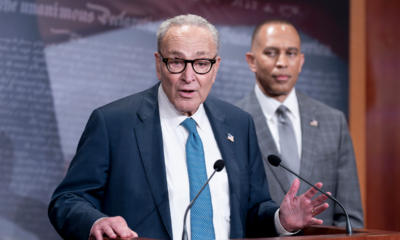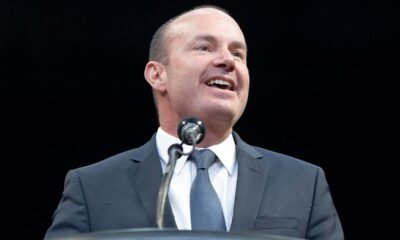INTERNACIONAL
LISTEN: Unhinged voicemail exposes left-wing candidate’s death threats against GOP senator
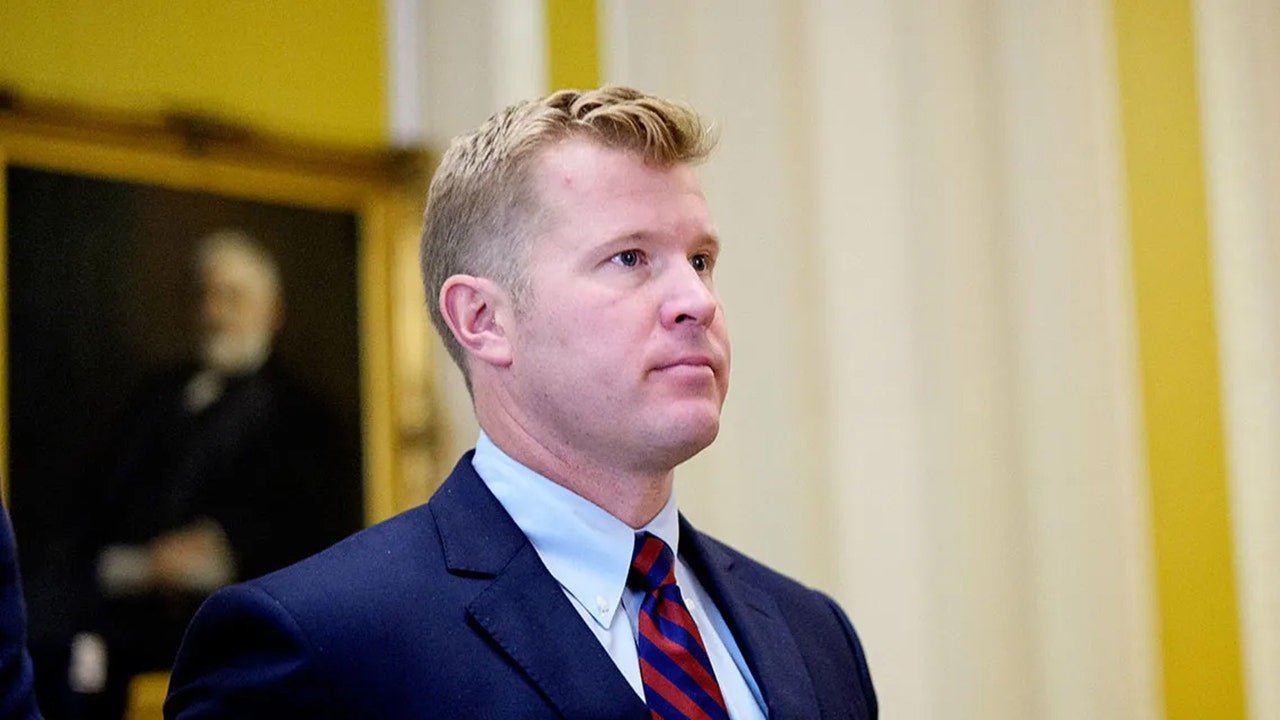
NEWYou can now listen to Fox News articles!
Freshman Sen. Tim Sheehy, R-Mont., was targeted with death threats and other extreme insults by a left-wing city commissioner candidate from Montana’s capital city of Helena, who called his office several weeks ago to leave her thoughts about the Republican senator over a voicemail.
The voicemail came in July, shortly after Sheehy voted with his Republican colleagues to pass the One Big Beautiful Bill Act, a sweeping tax and spending package from Republicans that angered many Democrats, including Helena city commissioner candidate Haley McKnight, following its passage.
«Hi, this is Haley McKnight. I’m a constituent in Helena, Montana,» McKnight started off in her voicemail, a recording of which was obtained and verified by Fox News Digital. «I just wanted to let you know that you are the most insufferable kind of coward and thief. You just stripped away healthcare for 17 million Americans, and I hope you’re really proud of that. I hope that one day you get pancreatic cancer, and it spreads throughout your body so fast that they can’t even treat you for it.»
But the anger didn’t stop there. During the roughly minute-long voicemail that phone logs reportedly show came in on the afternoon of July 1, McKnight launches into insults about Sheehy’s fertility and his children, before warning the senator not to «meet me on the streets.»
LAWMAKER TARGETED WITH DEATH THREAT AFTER CONDEMNING RACIST SIGN AIMED AT WINSOME SEARS
U.S. Sen. Tim Sheehy, R-Mont., (left) and Helena City Commissioner candidate Haley McKnight (right). (Photos from Haley for Helena and Andrew Harnik via Getty Images)
«I hope you die in the street like a dog,» McKnight continued. «One day, you’re going to live to regret this. I hope that your children never forgive you. I hope that you are infertile. I hope that you manage to never get a boner ever again. You are the worst piece of sh– I have ever, ever, ever had the misfortune of looking at … God forbid that you ever meet me on the streets because I will make you regret it. F— you. I hope you die.»
McKnight added that Sheehy doesn’t «serve Montanans,» but rather just his «own private interests.»
«All that you have done since you have gotten into power is do sh– for yourself.»
SENATORS MAKE BIPARTISAN CALL TO ‘TURN DOWN THE HEAT’ ON POLITICAL VIOLENCE, RHETORIC
McKnight, originally from North Carolina but now living and working in Montana, owns a small business called Sage & Oats Trading Post, which McKnight describes as «a successful Native American-owned gift store» on her campaign website. She also runs a consulting and design business called Morningstar Design Ltd Co, and is the president and a board member of the Helena Young Professionals group. She touts being the recipient of the Helena Chamber’s 20 under 40 award.
«I am always ready to stand up for what I believe and challenge the status quo,» McKnight’s «About» web page on her campaign website reads, which lists priorities like housing for all, better governmental transparency, increased funding for public art and music, and more accessible streets and downtown living.

Montana State Capitol building, located in Helena, Montana. (Photo by: Education Images/Universal Images Group via Getty Images)
In an interview with a local news outlet, McKnight touts her past volunteer work for the Obama campaign and more recently working on Democrat candidate Steve Held’s campaign for Congress. Held did not make it out of the primary.
Meanwhile, public campaign donation records reportedly show McKnight has donated to multiple Democratic candidates, according to records reviewed by Fox News Digital.
The Helena city commissioner race, which is traditionally nonpartisan, is her first time running for any sort of political office. McKnight was originally one of five declared nonpartisan candidates before she advanced to the November general election after finishing third in a nonpartisan primary in September.
«I’m a constituent, and I was responding to some horrible policy with some justified rage,» McKnight told Fox News Digital about the voicemail when reached for comment. «I would hope that if Sheehy was so rattled by my voicemail, he would have contacted me instead of leaking my information to conservative news media the night before an election. It feels like a cheap shot. I’m one of his constituents, and you know, this message is nothing that I’d say to my grandmother or in front of any children, it was meant for Senator Sheehy alone.»
McKnight said it was «laughable» that this is how Sheehy responds to constituent voicemails.
ANTISEMITISM WATCHDOG ISSUES SCATHING ‘ALARM BELL’ REPORT ON MAMDANI AS NYC ELECTION NEARS
«I also would have thought that somebody from the armed forces could have handled some tough language,» McKnight added. Sheehy is a former Navy SEAL who was shot while deployed in Afghanistan.

Tim Sheehy, founder of Bridger Aerospace, seen in the Bridger hangar in Bozeman, Montana, US, on Thursday, Jan. 18, 2024. Sheehy is a former Navy SEAL. (Photographer: Louise Johns/Bloomberg via Getty Images )
Meanwhile, McKnight went on to say she was simply trying to «convey the gravity of the situation» with her voicemail. She added that she was not intending to threaten Sheehy with her voicemail. McKnight also reportedly told the National Review she «obviously» had no intent of hurting Sheehy, reportedly telling the outlet: «I couldn’t, I’m a woman.»
«I wanted to drive home the struggles that people that I know are going through because of his policies. I think people were kind of shocked at my specificity, but these are things that are affecting people in my community,» McKnight told Fox News Digital, adding that Sheehy was spending too much time blocking the release of «the Epstein files» as opposed to understanding the struggles Montanans are going through.
But, when pressed on whether McKnight stood by her rhetoric from the voicemail, particularly after public officials from both sides of the aisle have called for folks to turn down the heat in light of the spate of political violence that the United States has faced recently, she simply responded: «No comment on that.»
«I have received numerous death and rape threats since this story has been published,» McKnight said when pressed even further. «My business is being threatened at the moment because of the actions of the senator,» she added, in reference to Sheehy publicly sharing her voicemail with the media.
ACQUITTAL OF MAN WHO URGED VIOLENCE AGAINST TRUMP PUTS FIRST AMENDMENT IN SPOTLIGHT
«It’s completely politically motivated,» McKnight concluded. «It’s a cheap shot the night before an election … the only thing left I have to say is release the Epstein files.»
Montana has no major statewide elections this year.
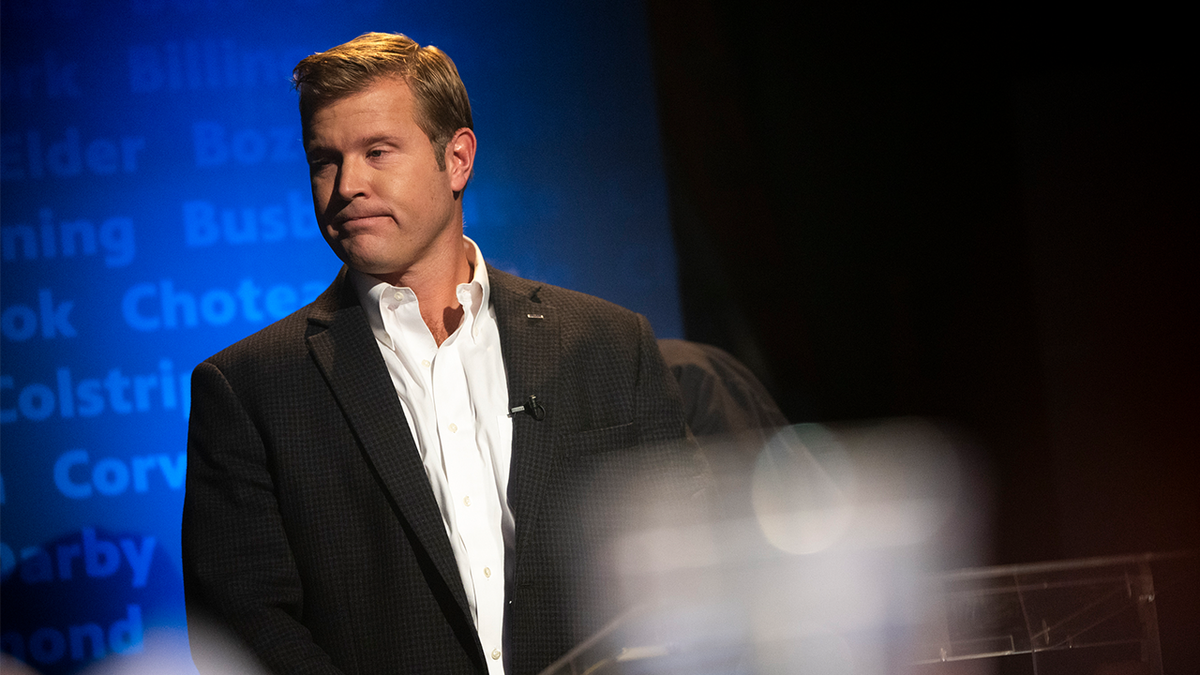
Tim Sheehy prepares to debate U.S. Sen. Jon Tester on campus at the University of Montana in Missoula, Mont. Sheehy eventually beat Tester in the subsequent election to take over his Montana Senate seat. (The Missoulian via AP)
In comments to the National Review, McKnight added that, «to see [Sheehy] throw away what Montanans need and want for his own betterment is enough to make me, yeah, want to fight him on site.»
«I’ll gladly say that, because I think in the time of rising fascism, we shouldn’t be afraid to say these things,» she added.
Meanwhile, when pressed by the outlet over whether she thought her voicemail went too far, McKnight reportedly said she didn’t think so, adding that she has had friends die of pancreatic cancer because of an inability to access care they required. «This is a man who’s so rich that he’s never, ever going to have to deal with that problem,» McKnight reportedly said.
In her comments to Fox News Digital, McKnight also recalled having a friend die from pancreatic cancer «because he couldn’t afford to treat it.»
CLICK HERE TO GET THE FOX NEWS APP
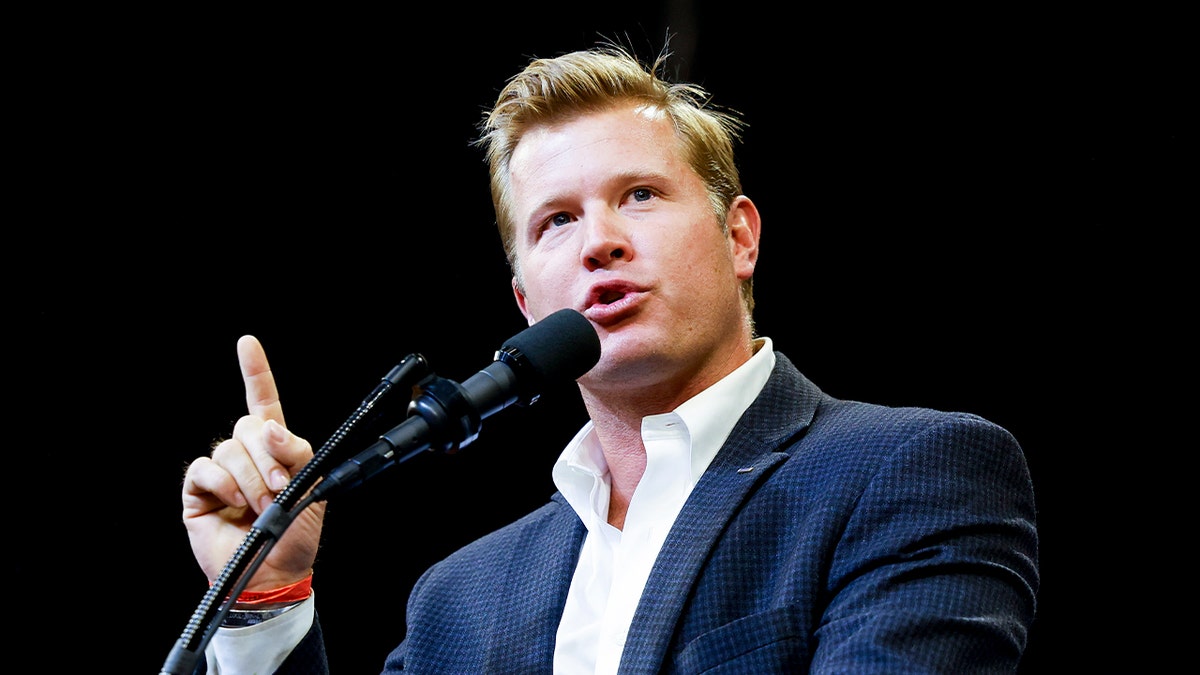
Montana Republican U.S. Senate candidate Tim Sheehy speaks during a rally for Donald Trump when he was running for president, at the Brick Breeden Fieldhouse at Montana State University on August 9, 2024 in Bozeman, Montana. (Michael Ciaglo/Getty Images)
McKnight, much like Democrat Attorney General candidate in Virginia, Jay Jones, who has been in hot water for comments about wanting to murder his political rival and his family, is an example of heightened political rhetoric that members of Congress and other public officials have expressed concern over.
«It doesn’t matter if it’s coming from one side or the other, directed at one party or another, or one person or another. It is all wrong – and it makes us all less safe,» Pennsylvania Gov. Josh Shapiro, a Democrat, said of political violence in September following the assassination of Charlie Kirk. Shapiro has been joined by members from both parties calling on others to turn down the heat amid a spate of political violence the country has seen.
When reached for comment about the voicemail, Sheehy spokesman Tate Mitchell said, «We hope Ms. McKnight gets the help she clearly needs and wish her well.»
montana,controversies state and local,state and local,senate,assassinations murders
INTERNACIONAL
Iran could ‘activate’ Hezbollah if US targets regime, Trump’s inner circle to decide: expert

NEWYou can now listen to Fox News articles!
Iran’s Islamic Revolutionary Guard Corps (IRGC) has tightened control over Hezbollah in the Middle East amid looming prospects of potential U.S. strikes, according to reports.
According to the Jerusalem Post, the tactical shift comes as Hezbollah and Iran prepare for military confrontation in the region, with analysts warning that if Washington specifically strikes the regime, Hezbollah is ready to be «activated.»
«If the regime in Tehran feels threatened, the likelihood of unleashing Hezbollah against Israel and U.S. regional assets increases substantially,» Ross Harrison, a senior fellow at the Middle East Institute, told Fox News Digital.
«Hezbollah would not be activated right away, unless the attack immediately targets the leadership of the Islamic Republic. But as part of a graduated response, Hezbollah will likely be seen as an asset,» he said.
«If it faces an existential risk, then Iran may throw caution to the wind and try to deploy Hezbollah to the maximum,» Harrison, author of «Decoding Iran’s Foreign Policy» explained.
IRAN SIGNALS NUCLEAR PROGRESS IN GENEVA AS TRUMP CALLS FOR FULL DISMANTLEMENT
«As part of a graduated response, Hezbollah will likely be seen as an asset,» Ross Harrison, a senior fellow at the Middle East Institute, told Fox News Digital. (Fadel Itani/NurPhoto via Getty Images)
President Donald Trump previously gave Iran a deadline of 10 to 15 days to respond to a deal, raising questions about what steps Washington could take if Tehran fails to comply.
A new round of talks is now scheduled for Thursday in Geneva and expected to focus on Iran’s nuclear program, including uranium enrichment levels and sanctions relief.
«The decision-making circle in the White House is very small regarding Iran, with the president keeping a close hand on it all,» Harrison explained.
He added that any decision to directly target the Iranian regime would likely rest within Trump’s inner circle of advisers.
«Normally there is input from the National Security Council and the wider intelligence community,» Harrison said. «Since the decision-making process in the White House is opaque, it is hard to know how much of this is getting through.»
WITKOFF WARNS IRAN IS ‘A WEEK AWAY’ FROM ‘BOMB-MAKING MATERIAL’ AS TRUMP WEIGHS ACTION
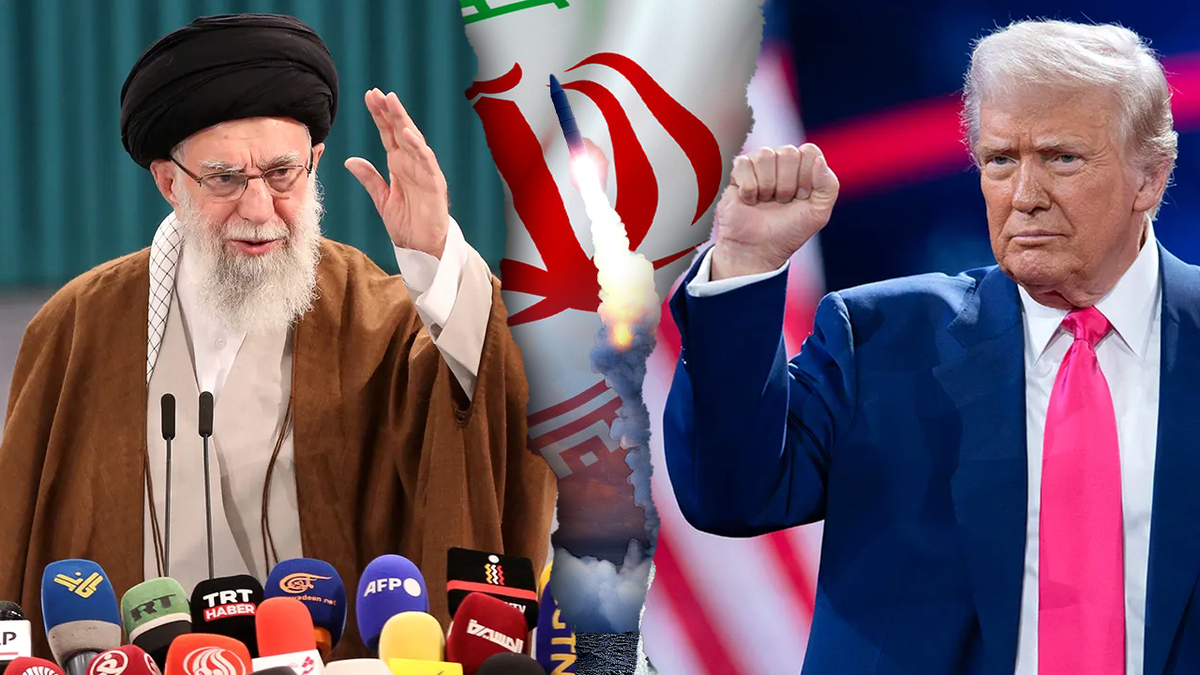
Another round of talks between the U.S. and Iran is slated for Thursday in Geneva. (Getty Images)
«If the U.S. is engaging with the Saudis and Emiratis, they are getting warnings about the possibility of this war spreading to the broader region, which would be deleterious to the U.S. and its allies,» he added.
Harrison also warned that there was «potential for attacks to spread across the region, to Israel through direct Iranian ballistic attacks and via Hezbollah, and to the Gulf Arab states through Iran directly and possibly via the Houthis from Yemen.»
Regional media reports also suggest Iran’s ties with Hezbollah are strengthening. Sources told Al Arabiya and Al Hadath that IRGC officers have been rebuilding Hezbollah’s military infrastructure and managing strategic war plans.
The coordination follows changes within Hezbollah’s leadership, Harrison explained.
«Since the killing by Israel of Hezbollah leader Hassan Nasrallah last year, ties and operational coordination have to some degree been reestablished,» he said.
«The IRGC has supported Hezbollah in Lebanon for decades,» he said, adding that efforts to reestablish ties appear to be occurring «particularly in light of the destruction of Iran’s nuclear sites last June.»
IRAN DRAWS MISSILE RED LINE AS ANALYSTS WARN TEHRAN IS STALLING US TALKS
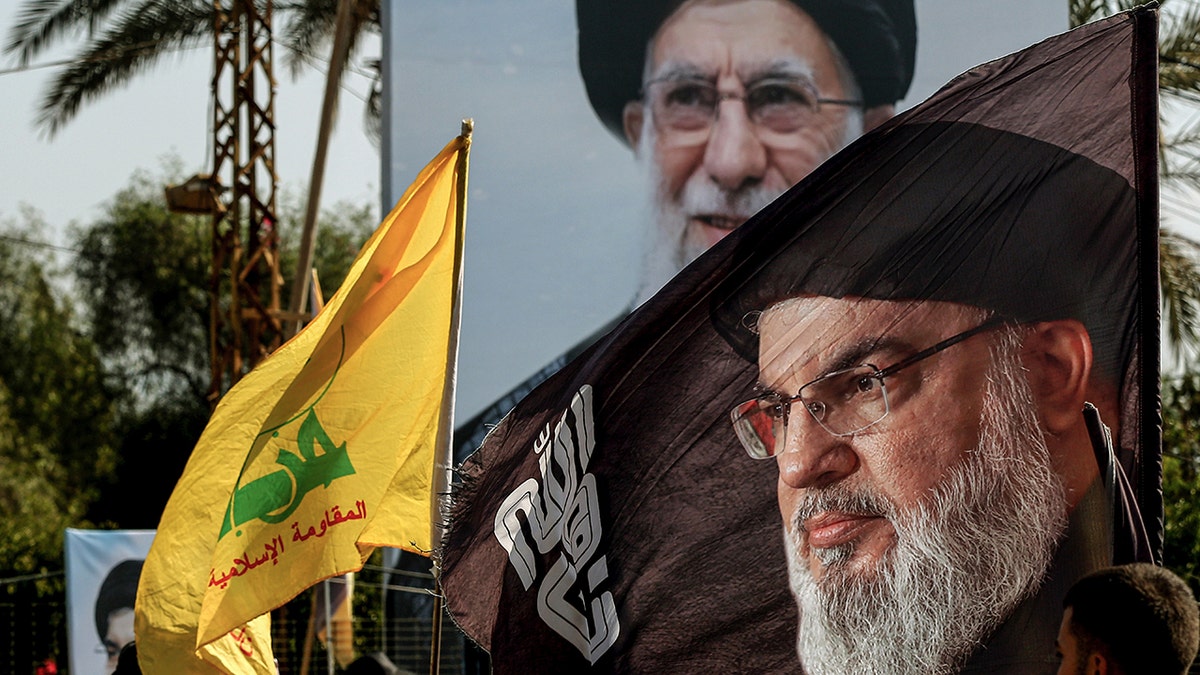
«Since the killing by Israel of Hezbollah leader Hassan Nasrallah last year, ties and operational coordination have to some degree been reestablished,» Harrison said. (Marwan Naamani/picture-alliance/dpa/AP Images)
«Iran is trying to resurrect lost assets, such as its missile program and its connections to Hezbollah,» Harrison said.
«Hezbollah has been seen for decades by Iran as a deterrence asset against an Israeli or American attack. Since Hezbollah has its own interests, connected to but separate from Iran, whether its leadership will go all the way for Tehran is unknown,» he concluded.
CLICK HERE TO DOWNLOAD THE FOX NEWS APP
The developments surrounding Hezbollah and the IRGC came as Supreme Leader Ayatollah Ali Khamenei has appointed close ally Ali Larijani as the country’s de facto leader, according to reports.
Fox News Digital has reached out to the White House for comment.
middle east,iran,ali khamenei,donald trump,middle east foreign policy,israel,lebanon
INTERNACIONAL
Ruud Gullit y la historia de su rechazo a un gigante de Europa que terminó definiendo su carrera: “Era demasiado pronto”

En la historia del fútbol, existen decisiones que alteran el rumbo de una carrera y, en ocasiones, de un deporte entero. El caso de Ruud Gullit y su rechazo al Arsenal cuando apenas tenía 17 años es uno de esos episodios poco conocidos, pero fundamentales, que definieron el destino de una de las mayores leyendas del fútbol neerlandés.
La propia voz del protagonista permite entender cómo ese “no” a tiempo marcó la diferencia y abrió una trayectoria irrepetible.
A finales de los años setenta, Ruud Gullit brillaba en el HFC Haarlem, club de la liga neerlandesa, cuando recibió una propuesta que cambiaría su perspectiva profesional. “Cuando tenía 17 años, escuché que el Arsenal quería ficharme”, relató el exfutbolista a Gambling Insider, citado por FourFourTwo. En ese momento, el club londinense contaba con la observación de Liam Brady como ojeador y ya había iniciado negociaciones con el Haarlem.
La magnitud de la oferta era inusual para un futbolista tan joven que apenas comenzaba a destacar en su país natal. “Era un privilegio que un club tan grande se interesara por mí a esa edad, pero era demasiado pronto para dar ese salto en mi carrera, así que lo rechacé”, explicó el propio Gullit, subrayando que la decisión no se debió a falta de ambición, sino a una evaluación racional de su desarrollo personal y futbolístico. “Simplemente no quería mudarme al club en ese momento”, añadió el exjugador.
La determinación de Gullit lo llevó a permanecer algunos años más en Haarlem antes de buscar el siguiente paso adecuado para su evolución.

Tras su negativa al Arsenal, Gullit continuó su formación en los Países Bajos. En 1982, firmó con el Feyenoord, donde compartió vestuario con el legendario Johan Cruyff y logró el doblete de liga y copa en su segunda temporada. Este proceso de maduración resultó clave para su posterior explosión en la élite. “Terminé pasando algunos años más en Haarlem antes de irme al Feyenoord, lo que sentí que era el movimiento correcto para mí”, reconoció.
La progresión no se detuvo en Rotterdam. En 1985, Gullit pasó al PSV Eindhoven, consolidando su estatus como una de las figuras emergentes del fútbol europeo. Su talento atrajo la atención del AC Milan, que en 1987 rompió el récord mundial de traspasos para asegurarse sus servicios. Ese mismo año, ganó el Balón de Oro, y su llegada a Italia marcó el inicio de una etapa dorada tanto a nivel individual como colectivo.
Durante su etapa en el AC Milan, Gullit conquistó tres títulos de la Serie A y dos Copas de Europa, siendo pieza central en el resurgimiento del club lombardo y en la consolidación de la liga italiana como epicentro del fútbol mundial.
Además, lideró a la selección de los Países Bajos en la obtención de la Eurocopa 1988. Este camino de gloria difícilmente habría sido igual si, en su adolescencia, hubiese optado por la oferta del Arsenal.

Mientras alcanzaba la cima en Italia y Europa, el Arsenal vivía sus propios procesos de reconstrucción. El club londinense celebró títulos de liga en 1989 y 1991, pero los aficionados aún se preguntan cómo habría influido la presencia de un joven Gullit en el equipo durante los años ochenta. La pregunta sobre el impacto potencial de una decisión tan temprana sigue vigente entre los hinchas y analistas británicos.
En 1995, tras una exitosa etapa en Italia, Gullit dejó la Sampdoria para unirse al Chelsea inglés, ya en el tramo final de su carrera, donde se convirtió en jugador-entrenador y logró la FA Cup.
Su paso por Inglaterra llegó mucho después de aquel primer contacto con el fútbol británico, reafirmando la importancia de aquel rechazo inicial al Arsenal. “Era demasiado pronto para mí. Necesitaba estar preparado y crecer antes de afrontar un reto fuera de los Países Bajos”, sentenció el neerlandés en sus declaraciones.
INTERNACIONAL
DHS shutdown drags into week two as Iran threat, SOTU clash complicate Hill talks
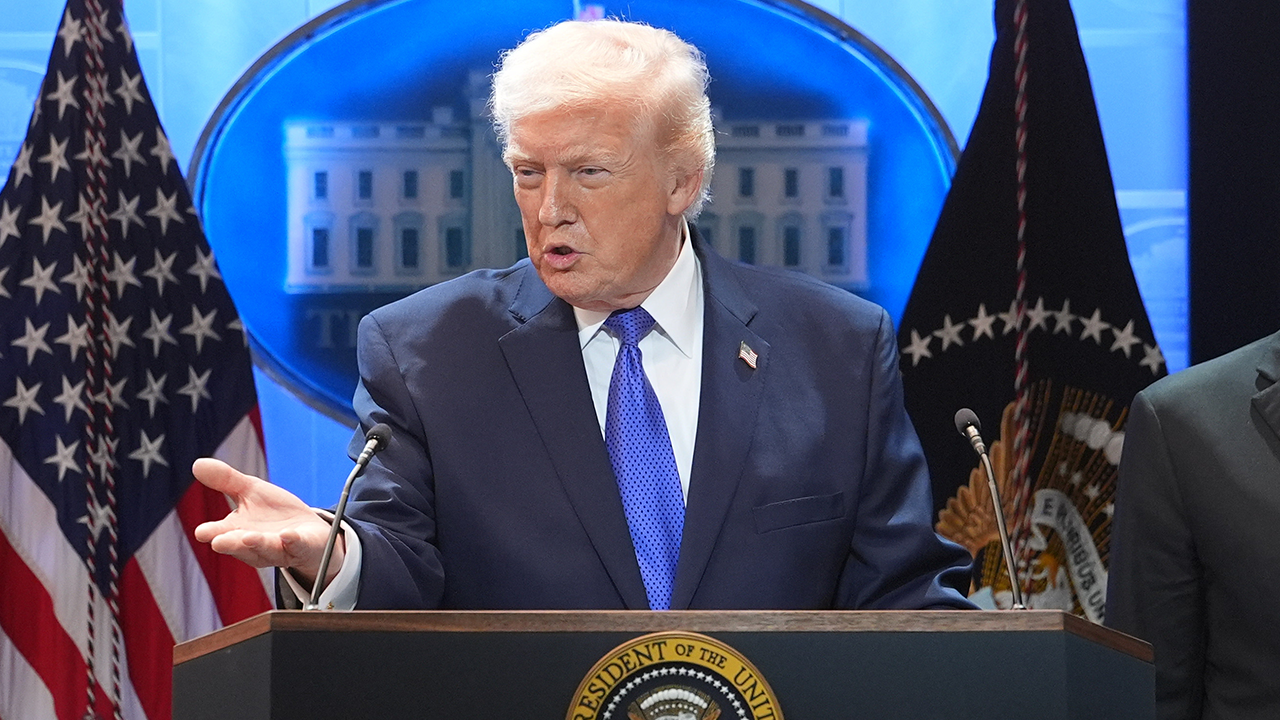
NEWYou can now listen to Fox News articles!
A government shutdown, big or small, is usually a front-and-center issue for lawmakers — but the most recent partial closure could be put on the back burner as Congress returns to several issues in Washington.
Senate Democrats and the White House are still at odds over funding the Department of Homeland Security (DHS), as the shutdown dragged into its tenth day. Neither side is budging, with the most recent concrete action coming early last week.
Trump, who proved pivotal in striking a funding truce with Senate Minority Leader Chuck Schumer, D-N.Y., in January, was not directly involved in recent negotiations.
‘TARIFFS SUCK’: SOME REPUBLICANS PRIVATELY CELEBRATE AS SUPREME COURT BLOCKS TRUMP POLICY
President Donald Trump has not had any «direct conversations or correspondence» with congressional Democrats recently. (Evan Vucci/The Associated Press )
Trump has not had any «direct conversations or correspondence» with congressional Democrats recently, White House press secretary Karoline Leavitt said, noting that the White House and its representatives have been handling the dialogue.
«But, of course, Democrats are the reason that the Department of Homeland Security is currently shut down,» she said. «They have chosen to act against the American people for political reasons.»
Senate Democrats offered a counter to the White House’s own counterproposal, which quickly was rejected as «unserious» by Leavitt. It’s a peculiar instance, given that this is the third shutdown during Trump’s second term, and neither side appears to be in a particular rush to end it.
DEMOCRATS RISK FEMA DISASTER FUNDING COLLAPSE AS DHS SHUTDOWN HITS DAY 5

Senate Minority Leader Chuck Schumer, D-N.Y., and his caucus have not relented in their position as DHS enters its tenth day of being shut down. (Nathan Posner/Anadolu via Getty Images)
Senate Majority Leader John Thune, R-S.D., told Fox News Digital that there’s «some room for give and take» in the negotiations, but remained firm in the GOP’s positioning against requiring Immigration and Customs Enforcement (ICE) agents from getting judicial warrants, unmasking or other reforms sought by Democrats that could increase risks for agents in the field.
«I felt like, you know, the last offer the White House put out there was a really — it was a good faith one, and it was clear to me that they’re attempting, in every way, to try and land this thing so we can get DHS funded,» Thune said.
Funding the agency will be a top priority for the upper chamber, but they’ll be delayed because of winter storms descending on the East Coast. The weather has caused the Senate to delay a vote on the original DHS spending bill until Tuesday night, ahead of Trump’s State of the Union address.
There are other issues that could get in the way of hashing out a deal, including a possible conflict with Iran and Trump’s desire to move ahead with tariffs without congressional approval.
GOP WARNS DEMOCRATS USING DHS SHUTDOWN TO STALL SENATE VOTER ID PUSH

Senate Majority Leader John Thune, R-S.D., warned that Senate Democrats were trying to tie up Republicans from hitting the campaign trail ahead of the pivotal 2026 midterm cycle. (Bill Clark/CQ-Roll Call, Inc via Getty Images)
Trump told reporters Friday that he was «considering» a limited military strike against Iran, which already has riled up some in Congress, who are demanding that lawmakers get a say on whether the U.S. strikes.
Sen. Tim Kaine, D-Va., said in a statement that he has a war powers resolution to block an attack on Iran filed and ready, and challenged his colleagues to vote against it.
«If some of my colleagues support war, then they should have the guts to vote for the war and to be held accountable by their constituents, rather than hiding under their desks,» Kaine said.
CLICK HERE TO DOWNLOAD THE FOX NEWS APP
On the heels of the Supreme Court’s ruling to torpedo his sweeping duties, Trump is considering bypassing Congress to move ahead with another set of global 10% tariffs.
That comes as some Republicans are quietly celebrating the end of the duties, and others are open to working with the administration on a path forward for trade policy.
On tariffs, a Republican aide told Fox News that the GOP was «waiting to see what POTUS does next.»
«The State of the Union should be interesting,» they said.
politics,senate,government shutdown,homeland security

 ECONOMIA2 días ago
ECONOMIA2 días agoVillarruel cuestionó la apertura de importaciones: «Sin industria, se pasa a depender de China»

 POLITICA2 días ago
POLITICA2 días ago“Ahora es la hora de jugarse”: el mensaje de Patricia Bullrich a los empresarios tras aprobarse la reforma laboral

 ECONOMIA2 días ago
ECONOMIA2 días agoSegún un especialista, el precio de la carne se mantendrá alto “entre dos y tres años”

